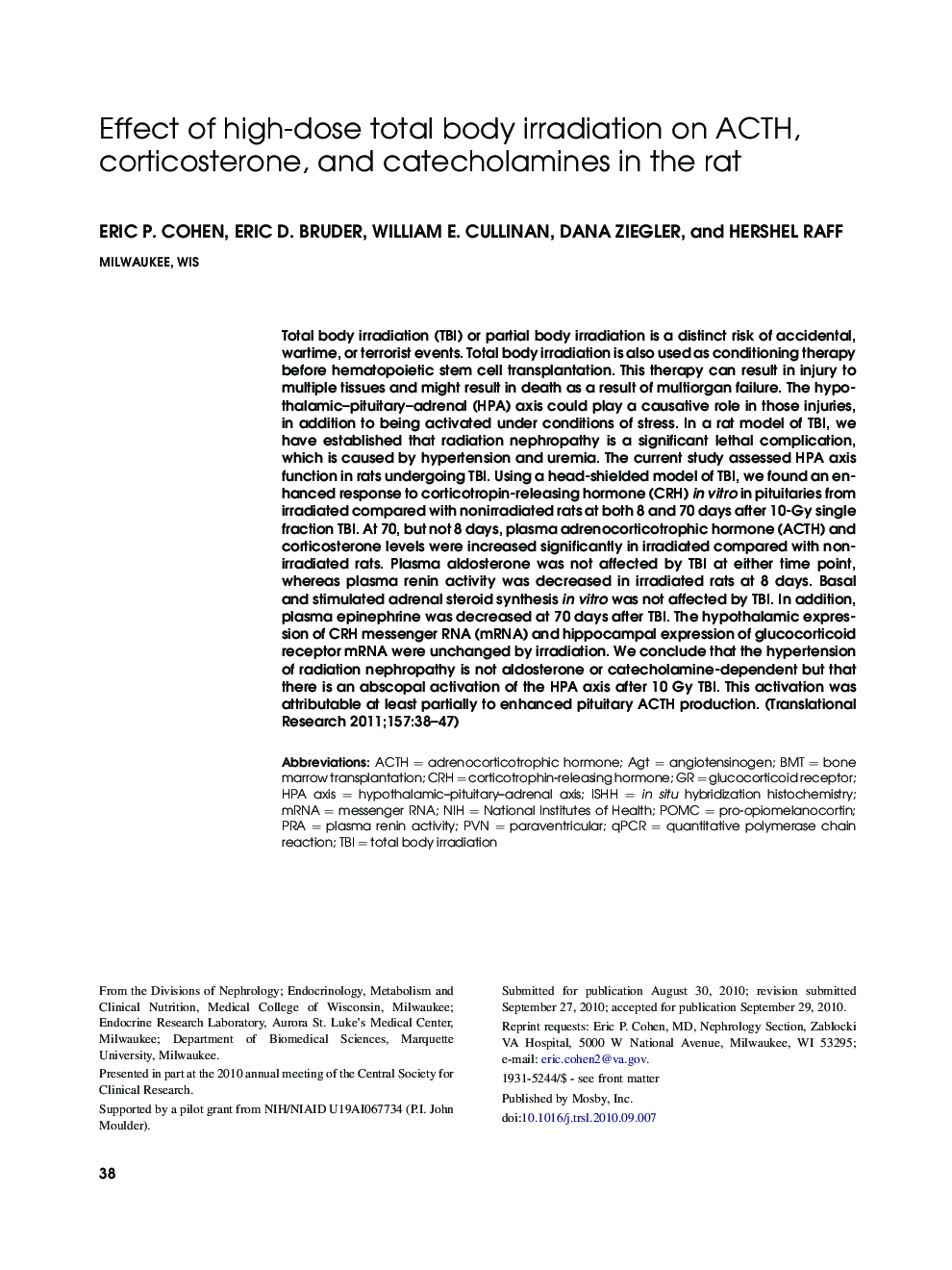| کد مقاله | کد نشریه | سال انتشار | مقاله انگلیسی | نسخه تمام متن |
|---|---|---|---|---|
| 3840790 | 1247937 | 2011 | 10 صفحه PDF | دانلود رایگان |

Total body irradiation (TBI) or partial body irradiation is a distinct risk of accidental, wartime, or terrorist events. Total body irradiation is also used as conditioning therapy before hematopoietic stem cell transplantation. This therapy can result in injury to multiple tissues and might result in death as a result of multiorgan failure. The hypothalamic–pituitary–adrenal (HPA) axis could play a causative role in those injuries, in addition to being activated under conditions of stress. In a rat model of TBI, we have established that radiation nephropathy is a significant lethal complication, which is caused by hypertension and uremia. The current study assessed HPA axis function in rats undergoing TBI. Using a head-shielded model of TBI, we found an enhanced response to corticotropin-releasing hormone (CRH) in vitro in pituitaries from irradiated compared with nonirradiated rats at both 8 and 70 days after 10-Gy single fraction TBI. At 70, but not 8 days, plasma adrenocorticotrophic hormone (ACTH) and corticosterone levels were increased significantly in irradiated compared with nonirradiated rats. Plasma aldosterone was not affected by TBI at either time point, whereas plasma renin activity was decreased in irradiated rats at 8 days. Basal and stimulated adrenal steroid synthesis in vitro was not affected by TBI. In addition, plasma epinephrine was decreased at 70 days after TBI. The hypothalamic expression of CRH messenger RNA (mRNA) and hippocampal expression of glucocorticoid receptor mRNA were unchanged by irradiation. We conclude that the hypertension of radiation nephropathy is not aldosterone or catecholamine-dependent but that there is an abscopal activation of the HPA axis after 10 Gy TBI. This activation was attributable at least partially to enhanced pituitary ACTH production.
Journal: Translational Research - Volume 157, Issue 1, January 2011, Pages 38–47